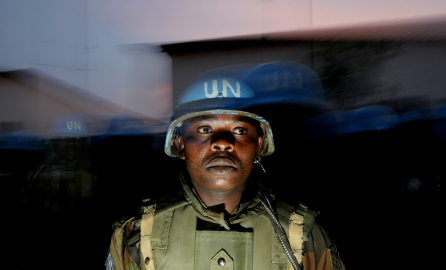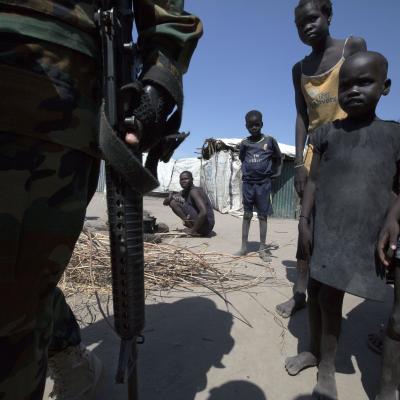As an EU staffer, you have just been selected to go to Afghanistan, CAR, DRC, Georgia, Ukraine, Timor-Leste or Mali… You have your diplomatic passport, you have successfully finished the Hostile Environment Awareness Training and most probably you were briefed by headquarters in Brussels on what to expect and how to behave in your new working environment. Don't forget to pack the EU Staff Handbook for Operating in Situations of Conflict and Fragility (here in French).
"This is definitely one of the key issues in our cooperation - to be where people need it the most," said the Head of Finance, Contracts and Audit in the EU Delegation to Afghanistan. "If there was somewhere where we didn't dare to go, then who would?"
This is a “useful overview of current concepts, policies, instruments and good practices,” said Fernando Frutuoso de Melo, Director-General of DEVCO. “It does not set out new policies or procedures at length; instead, it summarises them in a single document and points to where more detailed guidance and documentation can be obtained.”
More than 80 staff members in Brussels as well as practitioners from 15 EU Delegations were consulted in the production of the handbook, which is why it is very often referred to as being written ‘by the staff for the staff’. In a couple of years you may be also asked to share your professional experience with colleagues who are just starting their career in an EU Delegation in a fragile or conflict-affected country.
“Even if you are not working in a fragile state at the moment, experience tells us that situations can change quickly,” said Chloé de Soye, one of the consultants that contributed to the development of the handbook. “This handbook is designed to help staff predict as well as react to conflict and fragility.”
In this sense the handbook is referred to as a “living document”, which will be regularly updated online to reflect new developments and gather lessons learned and best practices for the wide use of EU staff working in or on fragile and conflict-affected situations. It has already undergone its first revision to include more information on Conflict Sensitivity (defined as ‘a set of processes that help us recognise the unintended ways our work can contribute to violent conflict’ and avoid doing harm).
The text is peppered with first-hand advice from colleagues in the field. For instance, in tackling the infamous bugbear of how development and humanitarian practitioners could better work together, it advises: “Examples of collaboration between EU Delegations and ECHO that went well were those that were able to overcome mutual preconceptions (i.e. that development actors do not focus on the most pressing problems and that humanitarians slow down development by not working with governments).”
In this regard, joint contextual analysis and regular exchange of experiences between development and humanitarian actors are crucial.
It also reflects what didn’t work.
“After Operation Artemis in the Ituri province of the Eastern Democratic Republic of the Congo, one donor-funded programme supported job creation through road works. However, it unintentionally employed only one of the two ethnic groups that were in conflict at the time. A smarter, more sensitive programme —aimed at creating jobs, rebuilding roads and rebuilding peace across groups — would have employed both, fostering their cooperation and mutual trust.”
The Head of Finance, Contracts and Audit in the EU Delegation to Afghanistan advised staff working fragile situations not to automatically avoid normal procurement procedures when funding projects.
“Because the situation is so complex people think 'I will never succeed in making a normal procurement process here – we benefit from the Declaration of Crisis Situation, let's take full advantage from the beginning'.” However, the Head of Finance, Contracts and Audit in the EU Delegation to Afghanistan said experience had shown this was not the right approach.
“First of all, we are there to find a way to normalise the situation [...] so somebody somewhere has to start with practicing the normal approach to business [...]. In very few cases have we had to use the Declaration of Crisis Situation. We have been able to manage a normal process […] and that's exactly what we are pushing the government to apply. So we get more credibility by applying normal procedures to push the government to do it because we have concrete examples that it is manageable and that the aim of all this procurement has been achieved, even by using the normal procedures.”
Reflecting the renewed emphasis on resilience among DEVCO and other partners, the handbook also explores what is required to implement a resilience approach? Among the answers: “…special attention to coordination mechanisms; thinking about peacebuilding and state-building issues from Day 1, even if they are long-term issues; and engaging with national counterparts according to context.”
This collaborative piece was drafted with input from Mihaela Haliciu (DEVCO) with support from the capacity4dev.eu Coordination Team. Teaser image courtesy of UN Photo/Stuart Price.





Log in with your EU Login account to post or comment on the platform.